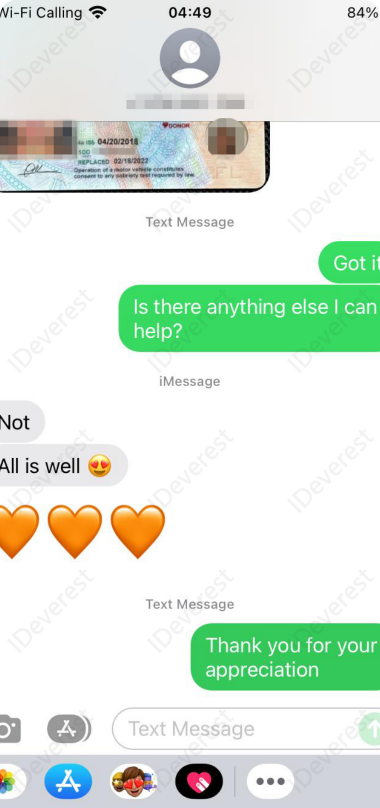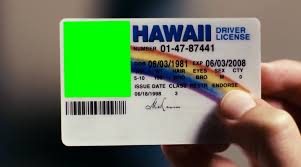Fake ID market analysis
Introduction
The market for fake IDs has grown in complexity and sophistication, driven by demand across various sectors and age groups. What once was limited to crude forgeries on college campuses has transformed into a global industry, fueled by technological advancements in printing and online access. This detailed market analysis provides an in-depth look into the factors driving the rise of counterfeit identification, the characteristics of fake ID products, and the evolving trends in the industry. We will also consider the challenges faced by regulators in curbing this market and the ethical implications surrounding the use of fake IDs.
In this analysis, we break down the fake ID market into its fundamental components: consumer behavior, product features, market players, and the challenges surrounding legal frameworks. Understanding the intricacies of this market will be critical for anyone interested in countering the growing trend of counterfeit identification.
1. Understanding the Fake ID Market
1.1 Historical Overview
The fake ID market, in its earliest forms, was limited to rudimentary forgeries often created using basic technologies like photocopiers and low-resolution printers. These early versions of counterfeit IDs were typically of poor quality, easily detectable, and largely associated with underage individuals seeking access to restricted services such as alcohol or nightclubs.
With advancements in technology and the emergence of the internet, the fake ID market has transformed into a sophisticated underground economy. Modern fake IDs often feature high-quality materials, holographic elements, and even barcodes that mimic real government-issued identification. These changes have expanded the market, leading to greater concerns about the use of counterfeit IDs in more serious crimes, including identity theft, financial fraud, and illegal immigration.
1.2 The Digital Transformation of the Market
The most significant shift in the fake ID market has been its digital transformation. With the rise of online platforms and darknet marketplaces, counterfeit IDs are now more accessible than ever. Buyers can easily find vendors who promise high-quality, scannable fake IDs, often offering guarantees of authenticity.
Moreover, these platforms offer fake IDs for a wide range of purposes, including driving licenses, passports, and other official documents. This diversification has broadened the scope of the fake ID market, attracting consumers with different motivations.
2. Product Features and Specifications
2.1 High-Quality Forgeries
Fake ID products have become increasingly sophisticated, with manufacturers replicating nearly all the features of genuine IDs. Modern fake IDs include complex elements such as holograms, UV features, microprinting, and magnetic strips. Vendors often advertise that their products will pass scanning tests used by bars, airports, and other institutions to verify identification.
The availability of these high-quality features has set a new standard in the market, where buyers expect fake IDs that not only look authentic but also function like genuine IDs. This evolution has made it harder for security professionals to identify counterfeit IDs and has led to a rising concern among law enforcement agencies.
2.2 Customization Options
Many fake ID suppliers offer extensive customization options to meet the needs of a diverse clientele. Buyers can choose from a wide variety of templates based on state, country, or region-specific IDs. Customization options may include:
- Specific age and date of birth
- Photograph placement and background editing
- Various state seals and logos
- Scannable barcodes or QR codes
This flexibility allows customers to tailor their fake IDs to their specific needs, further fueling the demand for these products. Online vendors often provide detailed guides on how to choose the best customization options to make the fake ID appear as real as possible.
3. Consumer Behavior and Motivations
3.1 Primary Motivations for Purchasing Fake IDs
The reasons individuals seek out fake IDs vary greatly, but some of the most common motivations include:
- Underage drinking: This is the primary driver for many teenagers and college students, particularly in countries like the United States, where the legal drinking age is 21.
- Access to restricted venues: Nightclubs, casinos, and other adult-only venues are a key incentive for young people to acquire fake IDs.
- Circumventing travel restrictions: In some cases, individuals use counterfeit documents to cross borders, evade authorities, or avoid travel restrictions.
- Financial fraud: Criminal organizations or individuals may use fake IDs to commit credit card fraud, money laundering, or other financial crimes.
Understanding these motivations is critical for regulators and law enforcement agencies working to curb the use of counterfeit identification. It also provides insights into how vendors target specific consumer segments and why certain demographics are more likely to purchase fake IDs.
3.2 Demographic Analysis of Fake ID Users
The demographic of fake ID users is predominantly young, with the largest proportion falling between the ages of 18-25. This age group is particularly motivated by social and recreational factors, such as gaining access to bars, nightclubs, and purchasing alcohol.
However, there are other demographic segments that contribute to the fake ID market, including:
- Immigrants: Some individuals may use fake IDs to avoid detection by immigration authorities or to obtain employment.
- Criminal organizations: Fake IDs are often used by criminal networks to create false identities for illegal activities.
- Individuals with suspended licenses: People who have had their driving licenses revoked may seek out counterfeit versions to continue driving illegally.
4. Market Analysis: Supply and Demand
4.1 Demand for Fake IDs
The demand for fake IDs has seen steady growth in recent years, driven by factors such as the increasing ease of access to counterfeit products online and the persistent desire for underage individuals to access restricted goods and services. In regions where the legal drinking age is higher, such as the United States, the demand for fake IDs tends to be more pronounced compared to countries where alcohol restrictions are less stringent.
Moreover, the demand for fake IDs is influenced by social factors, such as peer pressure, the desire for independence, and the growing normalization of fake ID use in certain circles.
4.2 Supply Dynamics
The supply side of the fake ID market is characterized by a variety of vendors, ranging from small-time forgers to large-scale operations. Many of these vendors operate on the darknet or use encrypted communication methods to evade law enforcement.
A growing trend within the market is the use of social media platforms to advertise and sell fake IDs. Vendors often rely on word-of-mouth marketing or discreet posts in private groups to attract new customers. They may also offer discounts for bulk purchases, attracting groups of college students or other groups seeking multiple IDs.
4.3 Geographic Market Trends
The fake ID market operates on a global scale, but there are notable regional trends in terms of both demand and supply. In countries with strict identification laws and higher age limits for alcohol consumption, such as the United States, demand for fake IDs is particularly strong. In contrast, in regions where these restrictions are less severe, demand tends to be lower.
From a supply standpoint, countries in Southeast Asia and Eastern Europe have become hubs for fake ID production. Manufacturers in these regions benefit from lower production costs and less stringent regulations, allowing them to produce high-quality fake IDs at competitive prices.
5. Ethical and Legal Concerns
5.1 Legal Ramifications
Using or manufacturing fake IDs is illegal in most jurisdictions, and the penalties for such activities can be severe. In many cases, individuals caught using counterfeit IDs face criminal charges, fines, and potential imprisonment. For manufacturers and sellers, the legal risks are even greater, often resulting in lengthy prison sentences and substantial financial penalties.
Despite these legal risks, the fake ID market continues to thrive, largely due to the difficulties in enforcing laws and regulating online transactions. Law enforcement agencies are often hampered by jurisdictional limitations and the anonymity provided by the internet, making it challenging to track down counterfeiters.
5.2 Ethical Implications
Beyond the legal ramifications, the use of fake IDs raises significant ethical concerns. From an individual perspective, using a fake ID to deceive authorities or businesses undermines trust and contributes to a culture of dishonesty. Moreover, fake IDs can have serious consequences for society at large, including enabling criminal activities such as human trafficking, financial fraud, and terrorism.
The ethical implications also extend to the manufacturers and sellers of fake IDs, who often profit from illegal and potentially harmful activities. This raises important questions about the responsibility of individuals and businesses in perpetuating the fake ID market and its associated risks.
6. Target Audience for Fake ID Products
6.1 Primary Consumer Segments
As noted earlier, the primary consumers of fake IDs are young people, particularly college students and teenagers seeking to circumvent age restrictions. However, there are other significant consumer segments, including:
- Travelers and expatriates: Some individuals seek fake IDs to gain access to countries or services that would otherwise be unavailable to them.
- Individuals involved in illicit activities: Fake IDs are frequently used by criminals to conceal their identity and avoid detection by law enforcement.
- Workers in regulated industries: In some cases, individuals may use fake IDs to gain employment in industries where they would not otherwise be eligible, such as security or transportation.
7. Future of the Fake ID Market
7.1 Technological Advancements
The fake ID market is likely to continue evolving alongside technological advancements in the coming years. As security features on government-issued IDs become more sophisticated, counterfeiters will need to keep pace by developing new methods for forging these features. Technologies such as 3D printing, AI, and blockchain could all play a role in the future of the fake ID market.
7.2 Regulatory Challenges and Solutions
Regulating the fake ID market presents significant challenges for law enforcement and government agencies. One potential solution lies in increased international cooperation and the development of standardized identification technologies that are more difficult to replicate. Additionally, greater investment in digital security measures, such as biometric verification and blockchain-based identity systems, could help reduce the demand for fake IDs by making them less effective.
8. Conclusion
The fake ID market is a complex and rapidly evolving industry driven by technological innovation, consumer demand, and the ongoing challenge of regulatory enforcement. While counterfeit identification products may seem like a relatively harmless tool for underage drinking, their implications extend far beyond this, touching on issues such as financial fraud, illegal immigration, and organized crime.
For policymakers, law enforcement, and security professionals, understanding the dynamics of the fake ID market is essential for combating its growth and mitigating its impact on society. As technology continues to evolve, so too must the strategies employed to address the challenges posed by counterfeit identification.
This comprehensive analysis provides a detailed look into the features, market trends, and legal implications of the fake ID industry, offering valuable insights for stakeholders at every level.
 vendor selection tips
vendor selection tips
 college students
college students
 digital ID market
digital ID market
 legal risks of fake IDs
legal risks of fake IDs